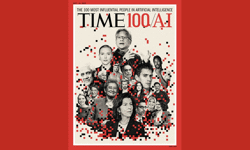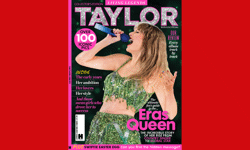
In his letter to readers on the new issue, which features pieces by Eddie S. Glaude Jr. on America's last chance, Viet Thanh Nguyen on the "model minority," Damon Young on what happens next, Jaquira Díaz on never feeling safe, and more, Time editor in chief and CEO Edward Felsenthal writes: "This week, we turned to voices from within and outside Time to explore the frustrations, hopes and experiences of marginalized communities in a country that claimed equality as its cornerstone but hasn’t delivered for so many."
For this week’s cover, Time turned to Atlanta-based artist Charly Palmer, who recently created the cover art for John Legend’s album Bigger Love. His painting In Her Eyes shows a girl faced with both the injustice of today and America’s historical role in it. Palmer tells Time: “For the past 25 years, I have been on a mission through my art to sound the alarm. I hope that this cover reflects that concern.”
Highlights from Time’s America Must Change cover package:
Eddie S. Glaude Jr. on how America has refused to change: “In each generation we have to experience the haunting ritual of a Black family grieving in public over the loss of a loved one at the hands of the police…. We have been here before…. The current crisis around policing and the protests in the streets confront us with the ugliness of who we are as a nation…. This moral reckoning requires confession and repair. If we fail this time, and it may well be our last chance, ours will be the latest addition to the ruins.”
Viet Thanh Nguyen, Pulitzer Prize-winning novelist, on the “model minority” myth and the discrimination faced by Asian Americans: “The end of Asian Americans only happens with the end of racism and capitalism. Faced with this problem, Asian Americans can be a model of apology, trying to prove an Americanness that cannot be proved. Or we can be a model of justice and demand greater economic and social equality for us and for all Americans.”
Damon Young, author of What Doesn’t Kill You Makes You Blacker, on the deadly toll of white supremacy: “What COVID’s devastation—and the bizarre response to it in some pockets of America—has done is make the tracks and tentacles of white supremacy less concealable and spinnable and more plain. We’re essentially in the midst of two pandemics, and it seems as if white people are seeing, finally, that white supremacy kills them too. We (humans) are incentive-based beings, and there’s no greater incentive than remaining alive.”
Jaquira Díaz, author of the memoir Ordinary Girls, on never feeling safe: “The truth is, some of us have always been in crisis. Some of us have never felt safe. Some of us have always been navigating systems of power and oppression in our homes, in our workplaces, in our schools, so we were not surprised by the last presidential election, because while some of America woke up to reality in November 2016, or even just last month, the rest of us have been waking up in this America since we were born or arrived here.”
Time’s Alana Semuels on the widening racial wealth gap: “Minneapolis has become the center of attention on racial issues because of its policing problems, but the city is also illustrative of a larger issue. Because of policy decisions made at the federal, state and local levels, it, like many places in America, has become more segregated, not less, over the past three decades. It’s a major reason Black Americans have been left behind in the nation’s economic growth.”
Time’s Abigail Vesoulis on the 12 ways Trump has deepened inequality: “Behind the scenes, the [Trump] Administration has quietly rolled back existing rules and issued new ones that have the effect of eliminating protections and opportunities for Black people, migrants, Native Americans, transgender people and other marginalized groups.”
There is also a photo essay of Asian Americans sharing stories of harassment and assault during the pandemic, photographed by Haruka Sakaguchi for Time.












